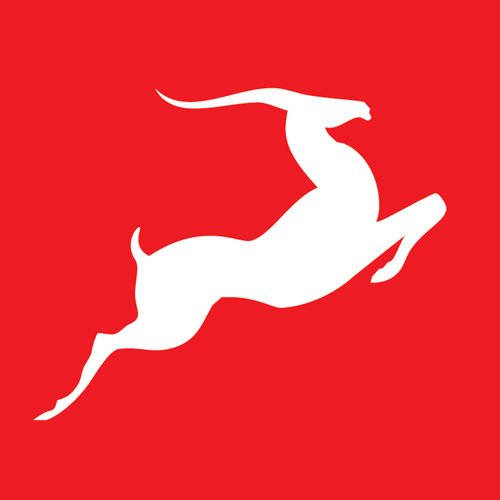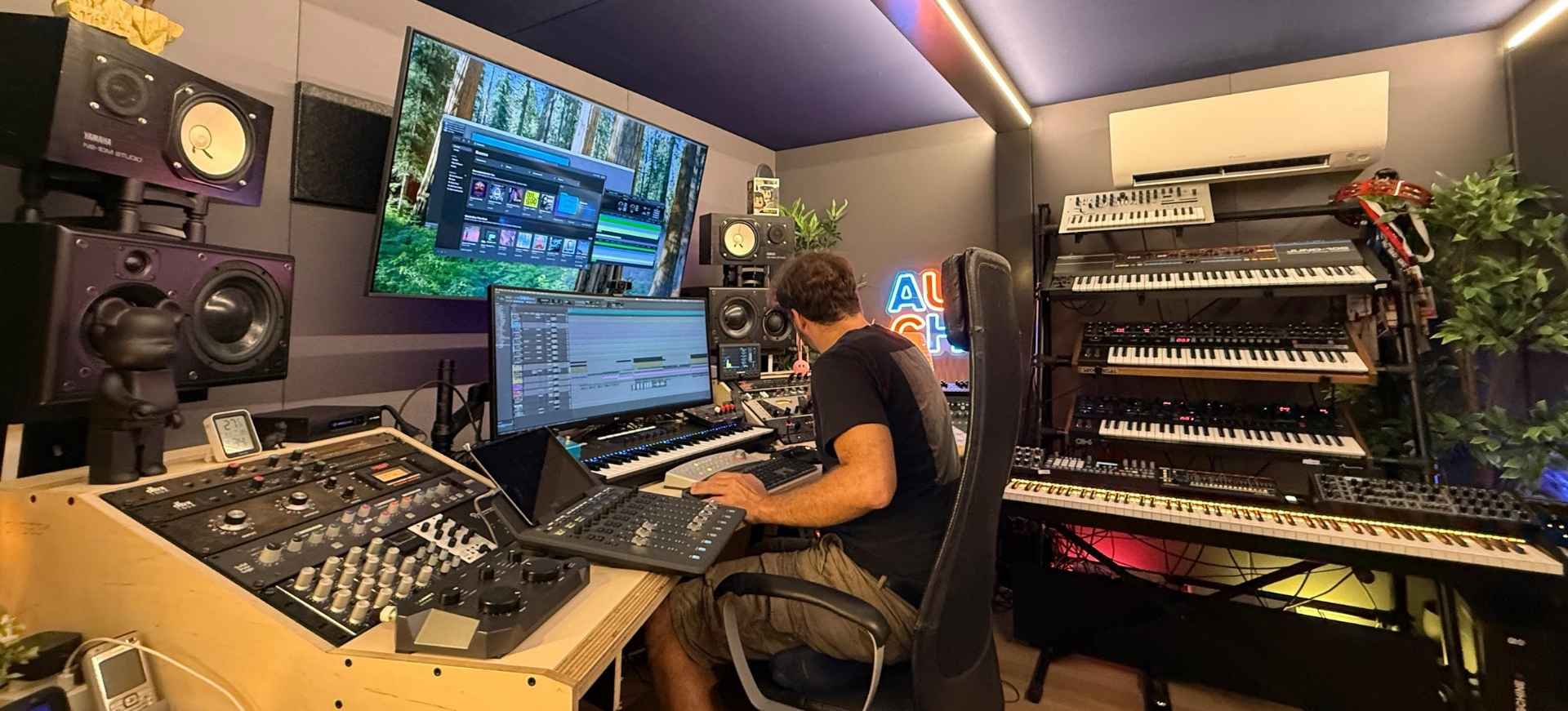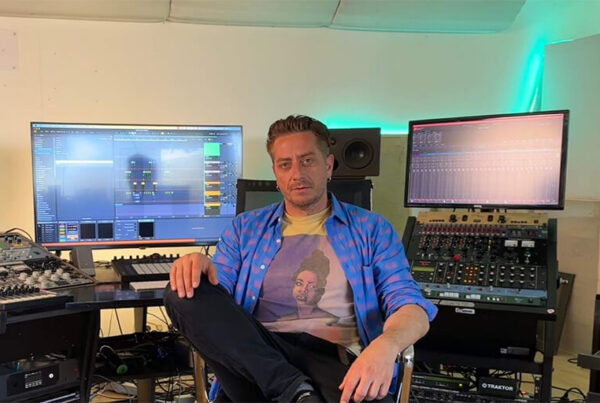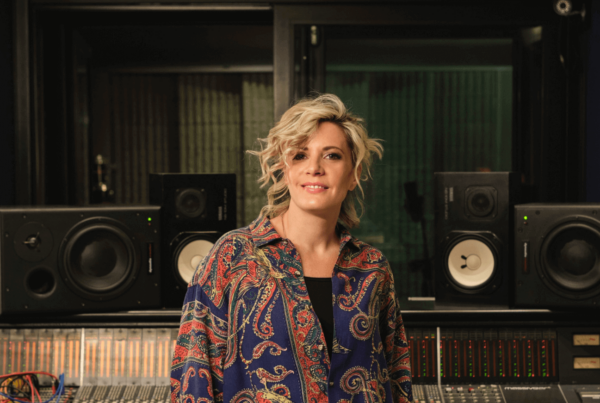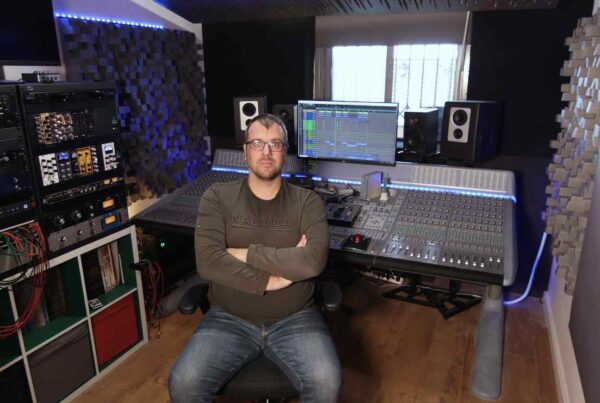From classical piano to electronic hits and cinematic scoring, Alessandro Gemelli shares his creative journey, hybrid studio workflow, and why the Orion32+ Gen4 is central to his sound across genres and projects.
Let’s start from the beginning – what first drew you into music? Was there a specific moment or influence that made you say, “This is what I want to do for the rest of my life”?
My first steps into music go way back. My parents enrolled me in music school when I was three years old.
I started with piano, but as I grew older, I became a bit rebellious. In my teenage years, I quit piano and classical music completely and dove into electronic and dance music instead.
(I actually regret quitting piano, since I lost a lot of skills by not playing for years.)
I can’t say exactly when it became my daily routine, but step by step, from my first time in a DJ booth to now, working 99% in the studio, it naturally became a real job. I probably still haven’t fully realized it!
You studied both piano and sound engineering before diving into electronic production. How do these disciplines shape the way you approach a track today?
Classical music has always been part of my life. My dad always played it at home. Those studies gave me a “musical ear,” which helps me start from a melody or riff and know instinctively when something works. Sound engineering and production also help a lot… especially in writing sessions, because I’m unconsciously building a decent rough mix as I go.

Your time in the Netherlands at Cruise Control Studio was pivotal in launching your international career. What did that chapter teach you about production and yourself?
Cruise Control Studio and my time in Amsterdam were a turning point.
I arrived as a young guy who wanted to become a DJ. The path wasn’t easy, but I got great opportunities. Living in the heart of the EDM scene back then was wild and full of life lessons.
My EDM project achieved some amazing things, releases on big dance labels and playing Tomorrowland for three years. But eventually, I realized it wasn’t the right path for me.
Honestly, I probably “missed the shot” as a DJ, but I also saw that I wouldn’t be happy living on tour every week. I’m a geek, my real place is in the studio. Of course, I still enjoy DJing sometimes, but the studio is home.

From Armada to Revealed, you’ve released music through some of the biggest electronic labels. What do you think made your sound stand out to those teams?
Honestly? I have no idea! I’ve always made music for my own pleasure, and I still do. Maybe that’s the reason.
Commercials, film scores, and brand campaigns often come with strict guidelines and tight deadlines. How do you stay creatively fulfilled while working within those constraints?
I’m not always creatively fulfilled, and that’s okay. I need personal time and other hobbies outside of music – that helps a lot.
Another thing I really enjoy is working with other people, musicians or songwriters, because inspiration often comes from interaction, even just talking.
Scoring films or working on brand events is especially inspiring because you can see the visuals and let them guide your creativity.

You’ve been running a hybrid studio setup for quite some time now. From a technical perspective, what’s essential for you when it comes to workflow, routing, and managing sessions smoothly?
My hybrid setup is simple. I switch between sessions daily and often revisit projects months later. To stay efficient, I leave most analog gear at default settings that work well. I rely on a few key units for shaping the mix, like a compressor for the drums, where I just adjust Attack, Release, or Ratio, easy to recall in Pro Tools. For EQ, I use plugins or USB-recall hardware. Recording is different tho. I set everything based on the source. Analog gear sounds best, but top-quality AD/DA conversion is essential to get its full potential.
Speaking of AD/DA conversion, you’ve been using Antelope’s Orion32 for years, and now the Orion32+ Gen4 is at the heart of your setup. How has this interface shaped the way you work, and what stands out to you most about it in daily use?
For me, one of the best aspects of the Orion series is the fully programmable routing. I can save different routing presets for tracking, mixing, or even for specific software setups. This makes switching between tasks incredibly quick and smooth.
What I expect from an audio interface is, above all, top-quality conversion, a solid amount of analog I/O, and useful digital extras. In all these areas, the Orion really stands out: its conversion quality is among the best I’ve used, and the amount of analog and digital I/O it offers is impressive. Also worth mentioning is the word clock, its performance is outstanding, especially considering the price point.

You’ve scored films (like Il Vegetale), produced chart hits, and launched your own project “Gale” with Sony Music. Do you approach pop songwriting differently than cinematic scoring?
Music always has a purpose, so every project needs a different approach.
Film scoring starts with a visual mood board. Pop songwriting, on the other hand, usually begins with the mood in the room, a phrase, or a concept we like.Sometimes (and it’s no secret), we also take inspiration from songs we love and twist them into our own style.
You’ve recently stepped into event sound direction, crafting the sonic experience for major brands. What’s the biggest challenge in making music that enhances a physical space rather than just existing in headphones or speakers?
I really enjoy this kind of work because it lets me experiment.
You need to understand the brand’s mood and what it wants to communicate. For example, a car reveal might need something epic and elegant, maybe with classical instruments or cinematic electronic vibes. A fashion show could lean more on dance music, or sometimes classical, too.
I’m also exploring spatial audio for events. If an Atmos system is available, it opens up really exciting, creative possibilities.
Do you find that producing for other artists changes your perspective on your own music? How do you avoid falling into creative habits or repeating yourself?
I think a producer has to be a tailor for the artist. I always try to figure out what “suit” fits them best.
Every artist is different, with unique tastes and needs. Of course, I have my own sound and style, but it has to blend with theirs. My goal is always to help the artist take a step forward in their career.
You’ve built a career that moves across genres and industries - pop, film, advertising, synth design, and beyond. Is there a thread that ties all these roles together for you creatively?
Absolutely! I’m a geek! I just love tweaking knobs and buttons.
For younger producers trying to break into this kind of multi-faceted career, what’s one hard lesson you had to learn that you wish someone had told you earlier?
Start this career as a hobby and keep it that way for as long as you can.
It helps you stay focused and original. Frustration will come. Other people’s music will always sound better than yours to your ears – but remember, yours sounds better than theirs to them!
Things change faster than you’d like, and sometimes you’ll feel like quitting or feel not good enough. It’s normal.
But if this is what you love, keep pushing. It’s worth it.
Socials:
Instagram – instagram.com/alessandrogemelli_
Website –www.alessandrogemelli.com

